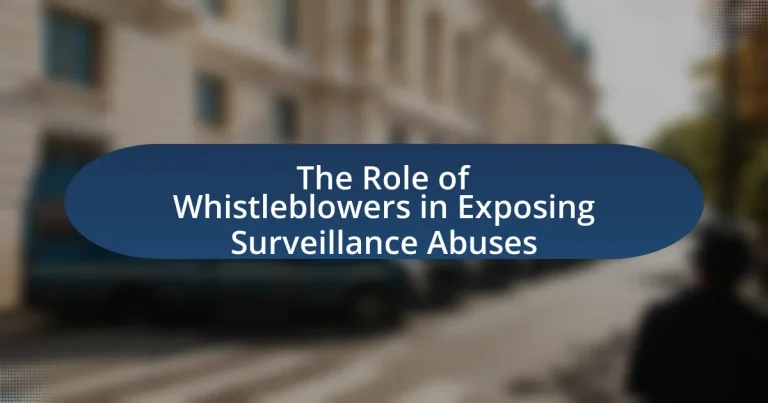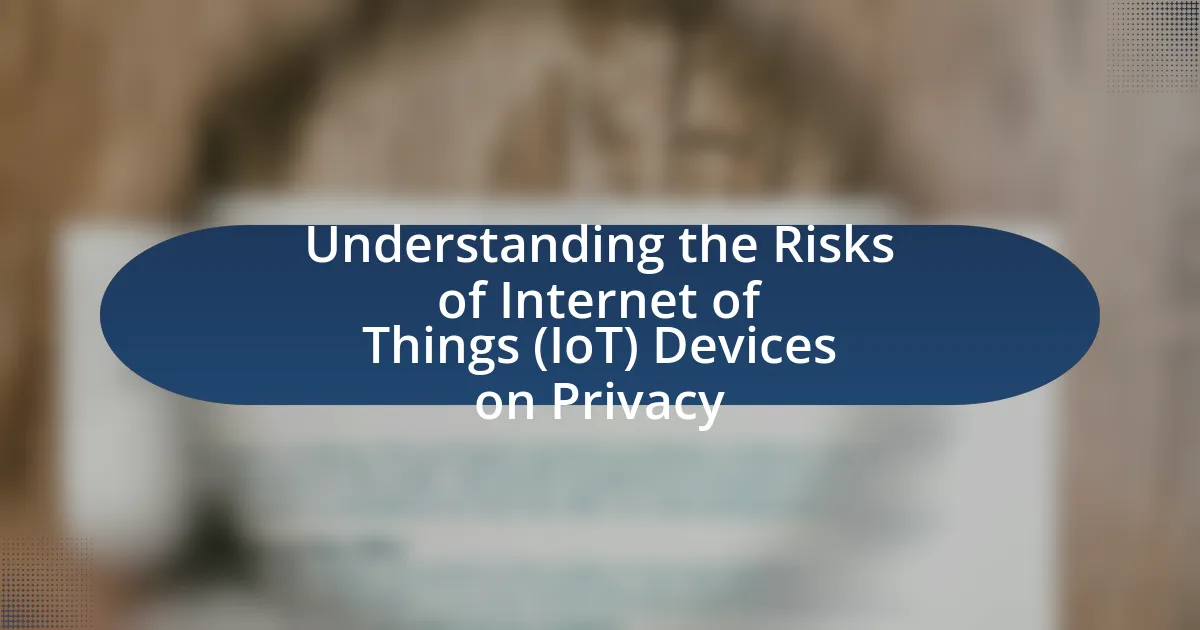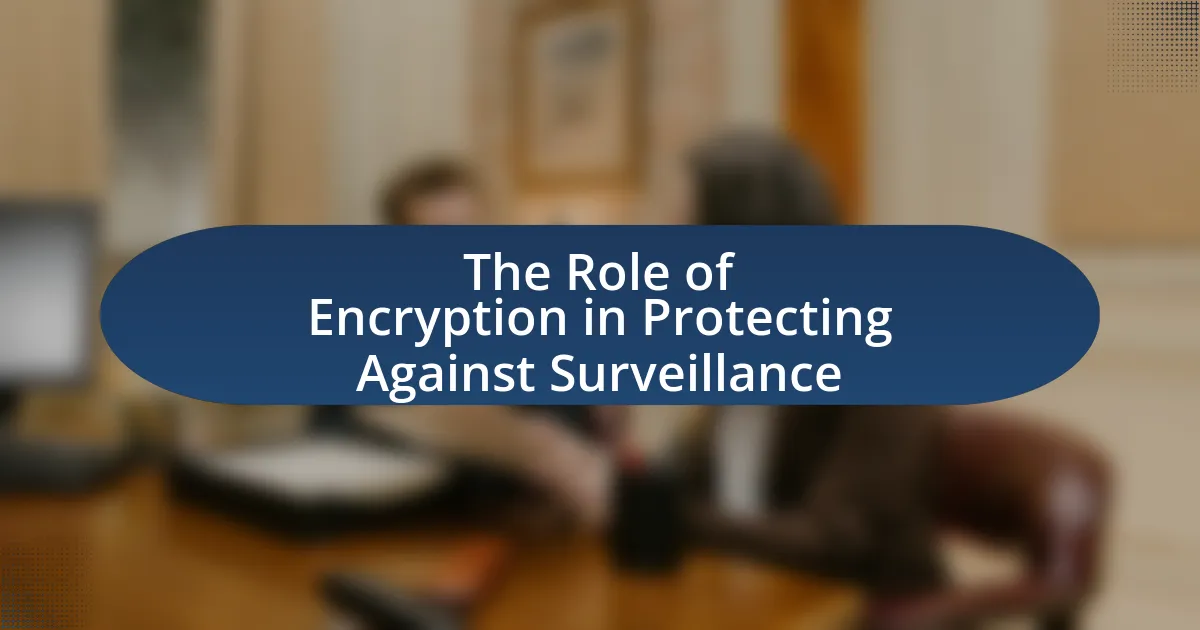Whistleblowers play a vital role in exposing surveillance abuses by disclosing illegal or unethical practices within government and corporate entities. Their firsthand accounts and evidence, exemplified by cases like Edward Snowden’s revelations about the NSA’s mass surveillance programs, catalyze public awareness, legal action, and policy reforms. This article examines the motivations driving whistleblowers, the risks they face, and the significant impact of their disclosures on public policy and accountability in surveillance practices. It also explores the challenges whistleblowers encounter, including legal barriers and retaliation, while highlighting the support systems and best practices available to protect and empower them in their efforts to promote transparency.
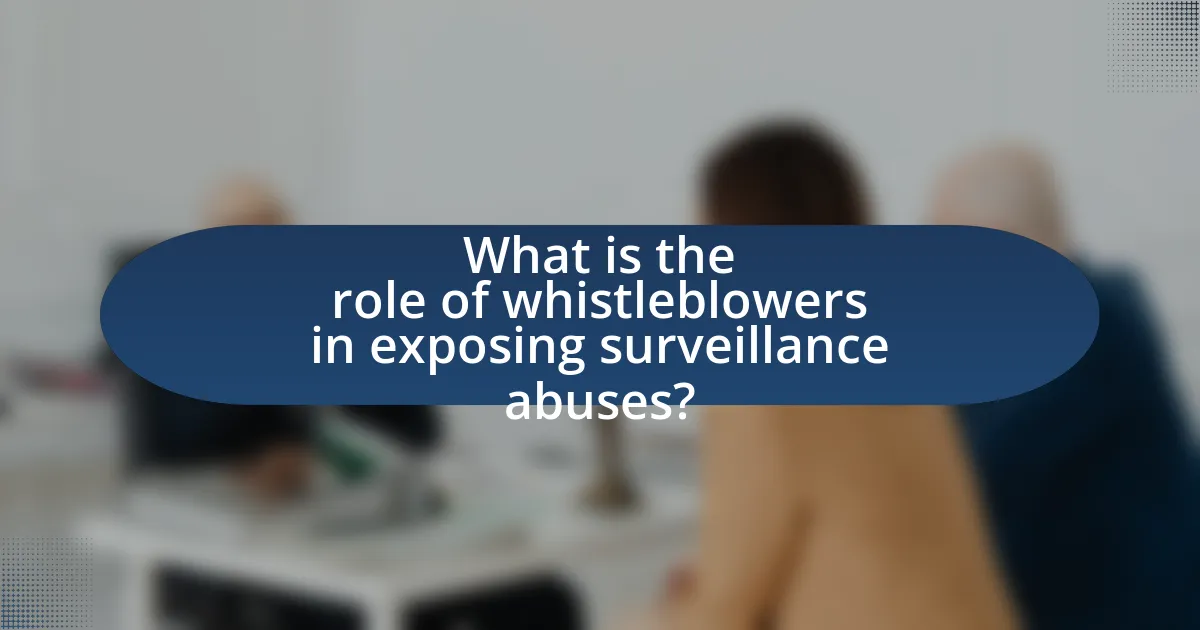
What is the role of whistleblowers in exposing surveillance abuses?
Whistleblowers play a critical role in exposing surveillance abuses by revealing illegal or unethical practices within government or corporate entities. They provide firsthand accounts and evidence of misconduct, which can lead to public awareness and legal action. For instance, Edward Snowden’s disclosure of the National Security Agency’s mass surveillance programs in 2013 highlighted significant violations of privacy rights and prompted global debates on surveillance ethics and reform. Such disclosures often catalyze investigations and policy changes, demonstrating the essential function of whistleblowers in promoting accountability and transparency in surveillance practices.
How do whistleblowers contribute to the identification of surveillance abuses?
Whistleblowers contribute to the identification of surveillance abuses by exposing unethical practices and violations of privacy laws within organizations. Their insider knowledge allows them to provide detailed accounts of misconduct, such as unauthorized data collection or misuse of surveillance technologies. For instance, Edward Snowden revealed extensive government surveillance programs that violated citizens’ privacy rights, leading to widespread public debate and legal reforms. This type of disclosure is crucial for holding entities accountable and fostering transparency in surveillance practices.
What motivations drive whistleblowers to come forward?
Whistleblowers are primarily motivated to come forward by a sense of moral obligation and the desire to expose wrongdoing. This motivation often stems from witnessing unethical practices, such as illegal surveillance or abuse of power, that conflict with their personal values. Research indicates that 70% of whistleblowers cite ethical concerns as their primary reason for reporting misconduct, highlighting the importance of integrity in their decision-making process. Additionally, the potential for personal repercussions, such as job loss or retaliation, does not deter many whistleblowers, as their commitment to accountability and transparency often outweighs these risks.
What risks do whistleblowers face when exposing surveillance abuses?
Whistleblowers face significant risks when exposing surveillance abuses, including legal repercussions, professional retaliation, and personal safety threats. Legal repercussions can manifest as criminal charges or civil lawsuits, as seen in cases like Edward Snowden, who faced espionage charges for leaking classified information. Professional retaliation often includes job loss, blacklisting, or career damage, which has been documented in various studies indicating that up to 90% of whistleblowers experience negative workplace consequences. Additionally, personal safety threats can arise, as whistleblowers may become targets for harassment or intimidation, evidenced by incidents where whistleblowers have faced stalking or threats to their families. These risks create a challenging environment for individuals considering exposing wrongdoing in surveillance practices.
Why are whistleblowers essential in the context of surveillance abuses?
Whistleblowers are essential in the context of surveillance abuses because they provide critical information that exposes illegal or unethical practices within organizations. Their disclosures often reveal the extent of surveillance overreach, such as unauthorized data collection or violations of privacy rights, which can lead to public awareness and accountability. For instance, Edward Snowden’s revelations about the National Security Agency’s mass surveillance programs in 2013 highlighted significant breaches of civil liberties, prompting global debates on privacy and government oversight. Such actions by whistleblowers not only inform the public but also catalyze legal reforms and policy changes aimed at protecting individual rights against invasive surveillance practices.
How do whistleblowers impact public awareness of surveillance practices?
Whistleblowers significantly enhance public awareness of surveillance practices by revealing hidden information about government and corporate activities. For instance, Edward Snowden’s disclosures in 2013 about the National Security Agency’s mass surveillance programs led to widespread public debate and scrutiny regarding privacy rights and government overreach. This exposure prompted legislative discussions and reforms, such as the USA Freedom Act, which aimed to limit certain surveillance practices. Additionally, whistleblower revelations often catalyze media coverage, further amplifying public discourse and encouraging civic engagement on issues related to privacy and surveillance.
What legal protections exist for whistleblowers in this field?
Legal protections for whistleblowers in the field of surveillance abuses include the Whistleblower Protection Act, which safeguards federal employees from retaliation when reporting misconduct. This act prohibits employers from taking adverse actions against whistleblowers, such as firing or demoting them, and provides avenues for legal recourse. Additionally, various state laws offer similar protections, and specific provisions under the Sarbanes-Oxley Act and the Dodd-Frank Act extend protections to whistleblowers in the financial sector, encouraging reporting of fraudulent activities. These legal frameworks are designed to promote transparency and accountability, ensuring that individuals can report abuses without fear of retribution.
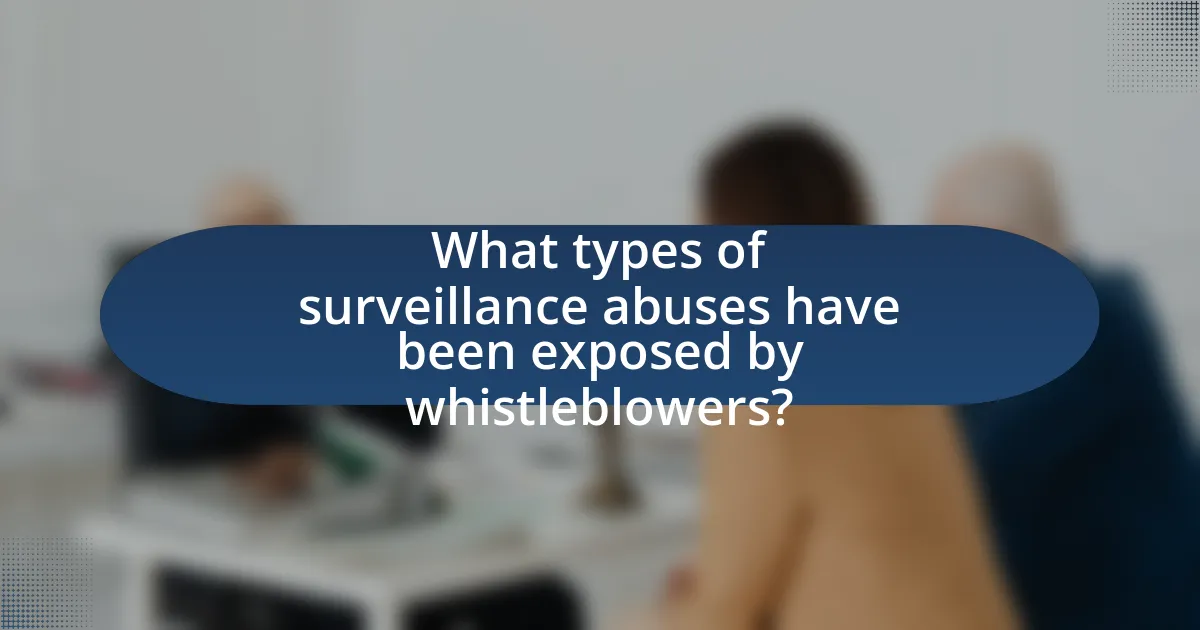
What types of surveillance abuses have been exposed by whistleblowers?
Whistleblowers have exposed various types of surveillance abuses, including unauthorized data collection, illegal wiretapping, and misuse of surveillance technologies. For instance, Edward Snowden revealed that the National Security Agency (NSA) engaged in mass surveillance of phone and internet communications without proper legal oversight, violating privacy rights. Similarly, former employees of the FBI and CIA have disclosed instances of unlawful monitoring of citizens, often without warrants, highlighting systemic issues in surveillance practices. These revelations underscore significant breaches of civil liberties and the need for accountability in surveillance operations.
How do specific cases illustrate the role of whistleblowers?
Specific cases illustrate the role of whistleblowers by demonstrating their critical function in exposing unethical practices and abuses of power. For instance, Edward Snowden’s disclosure of the National Security Agency’s mass surveillance programs in 2013 revealed extensive violations of privacy rights, prompting global debates on government surveillance and civil liberties. Similarly, Mark Klein, a former AT&T technician, exposed the company’s collaboration with the NSA to facilitate warrantless wiretapping, which highlighted the complicity of private corporations in government overreach. These cases underscore how whistleblowers can bring to light significant issues that may otherwise remain hidden, thereby fostering accountability and reform in surveillance practices.
What notable examples of whistleblowing have led to significant changes?
Notable examples of whistleblowing that have led to significant changes include Edward Snowden’s revelations about the NSA’s mass surveillance programs, which prompted global debates on privacy and led to reforms in surveillance laws in several countries. Another example is the whistleblowing by Mark Klein, a former AT&T technician, who exposed the company’s collaboration with the NSA to facilitate warrantless wiretapping, resulting in increased scrutiny of telecommunications practices and legal challenges against such surveillance activities. These instances illustrate how whistleblowers can catalyze critical discussions and legislative changes regarding surveillance abuses.
How have these cases influenced public policy regarding surveillance?
Whistleblower cases, such as those involving Edward Snowden and Chelsea Manning, have significantly influenced public policy regarding surveillance by prompting legislative reforms and increased scrutiny of government practices. Following Snowden’s revelations in 2013 about the National Security Agency’s mass surveillance programs, the USA Freedom Act was enacted in 2015, which aimed to limit the bulk collection of phone metadata and enhance transparency. Additionally, these cases have led to public debates about privacy rights, resulting in various states implementing stricter data protection laws and oversight mechanisms for surveillance activities. The impact of these whistleblower disclosures has been evident in the growing demand for accountability and the establishment of independent review bodies to oversee surveillance practices.
What patterns can be observed in whistleblower cases related to surveillance?
Whistleblower cases related to surveillance often reveal patterns of retaliation, legal challenges, and public support. Retaliation against whistleblowers is common, with many facing job loss, harassment, or legal repercussions after exposing surveillance abuses, as seen in cases like Edward Snowden and Chelsea Manning. Legal challenges frequently arise, as whistleblowers navigate complex laws that may not protect them adequately, leading to protracted legal battles. Public support can vary, with some whistleblowers receiving widespread acclaim for their courage, while others face significant backlash, reflecting societal attitudes toward government surveillance. These patterns underscore the risks and complexities involved in whistleblowing within the context of surveillance.
What common themes emerge from these cases?
Common themes that emerge from cases involving whistleblowers in exposing surveillance abuses include the moral obligation to report wrongdoing, the personal and professional risks faced by whistleblowers, and the impact of their disclosures on public awareness and policy change. Whistleblowers often act out of a sense of duty to protect civil liberties, as seen in cases like Edward Snowden, who revealed extensive government surveillance programs. Additionally, these individuals frequently encounter retaliation, including job loss and legal consequences, highlighting the significant personal sacrifices involved. Lastly, the revelations brought to light by whistleblowers often lead to increased scrutiny of surveillance practices and can catalyze reforms, as evidenced by subsequent legislative discussions following high-profile disclosures.
How do different sectors respond to whistleblower revelations?
Different sectors respond to whistleblower revelations with varying degrees of support and resistance, often influenced by their internal cultures and regulatory environments. In the corporate sector, organizations may implement protective measures for whistleblowers, such as anonymous reporting channels, to encourage transparency; however, they may also retaliate against whistleblowers to protect their reputations, as evidenced by a 2018 study from the Ethics & Compliance Initiative, which found that 39% of whistleblowers faced retaliation. In the public sector, government agencies often have formal whistleblower protection laws, yet the effectiveness of these protections can vary, leading to mixed responses; for instance, the U.S. Office of Special Counsel reported that whistleblowers in federal agencies often experience significant challenges despite legal safeguards. In the non-profit sector, responses can be more supportive, as these organizations may prioritize ethical standards and accountability, but they can also face pressures to maintain funding and public image, which may complicate their reactions to whistleblower disclosures. Overall, the response to whistleblower revelations is shaped by sector-specific dynamics, including the balance between ethical obligations and organizational interests.
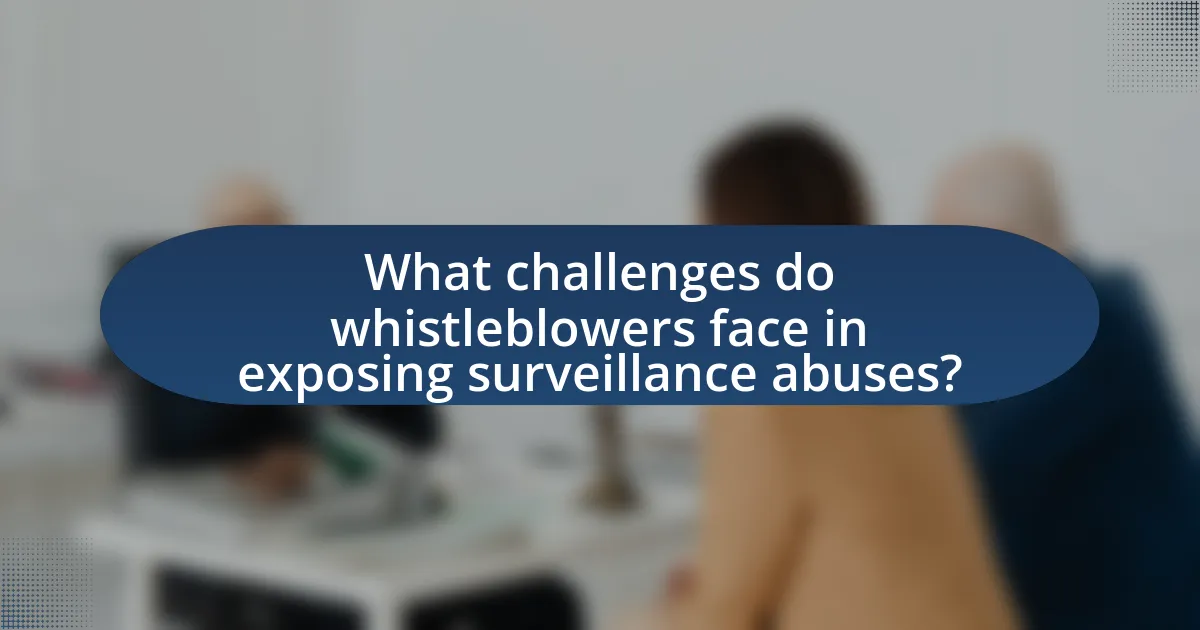
What challenges do whistleblowers face in exposing surveillance abuses?
Whistleblowers face significant challenges in exposing surveillance abuses, including legal repercussions, professional retaliation, and personal safety risks. Legal frameworks often lack adequate protections for whistleblowers, making them vulnerable to lawsuits or criminal charges, as seen in cases like Edward Snowden, who faced charges under the Espionage Act. Additionally, organizations may retaliate against whistleblowers through job termination or harassment, which can deter individuals from coming forward. Personal safety is also a concern, as whistleblowers may face threats or intimidation from those whose actions they expose. These challenges create a hostile environment that discourages the reporting of surveillance abuses.
How do legal and institutional barriers affect whistleblowers?
Legal and institutional barriers significantly hinder whistleblowers by creating an environment of fear and uncertainty. These barriers often include inadequate legal protections, which can lead to retaliation from employers, such as job loss or legal action against the whistleblower. For instance, a study by the Government Accountability Office found that 40% of whistleblowers reported experiencing retaliation, which discourages individuals from coming forward with information about misconduct. Additionally, institutional cultures that prioritize loyalty over transparency can further isolate whistleblowers, making it difficult for them to seek support or report abuses without facing severe consequences.
What are the implications of retaliation against whistleblowers?
Retaliation against whistleblowers can lead to significant negative implications for both individuals and organizations. Individuals who face retaliation may experience psychological distress, career setbacks, and financial instability, as evidenced by studies showing that whistleblowers often suffer from anxiety and depression after reporting misconduct. Organizations that retaliate against whistleblowers risk damaging their reputation, losing employee trust, and facing legal consequences, as laws such as the Whistleblower Protection Act in the United States provide legal safeguards for those who report wrongdoing. Furthermore, retaliation can create a culture of silence, discouraging others from coming forward with information about misconduct, which ultimately undermines accountability and transparency within organizations.
How can whistleblowers navigate these challenges effectively?
Whistleblowers can navigate challenges effectively by seeking legal protection and support from advocacy organizations. Legal protections, such as the Whistleblower Protection Act in the United States, provide safeguards against retaliation, which is crucial for whistleblowers facing potential job loss or harassment. Additionally, organizations like the Government Accountability Project offer resources and guidance, helping whistleblowers understand their rights and the reporting process. Research indicates that whistleblowers who utilize these resources are more likely to report misconduct successfully and face fewer negative consequences, reinforcing the importance of informed navigation through the complexities of exposing surveillance abuses.
What support systems are available for whistleblowers?
Support systems available for whistleblowers include legal protections, financial assistance, and psychological support. Legal protections, such as the Whistleblower Protection Act in the United States, safeguard whistleblowers from retaliation by employers, ensuring they can report misconduct without fear of job loss or harassment. Financial assistance may come from organizations like the Government Accountability Project, which provides resources and funding for whistleblowers pursuing legal action. Psychological support is often offered through counseling services and support groups, helping whistleblowers cope with the emotional toll of their actions. These systems collectively aim to empower individuals to report unethical practices while minimizing personal and professional risks.
How do advocacy groups assist whistleblowers in their efforts?
Advocacy groups assist whistleblowers by providing legal support, resources, and a platform for their voices. These organizations often offer legal counsel to navigate the complexities of whistleblower protection laws, ensuring that individuals understand their rights and the protections available to them. For instance, the Government Accountability Project has successfully represented numerous whistleblowers, helping them to secure legal protections and navigate the reporting process. Additionally, advocacy groups can help whistleblowers connect with media outlets, amplifying their concerns and increasing public awareness of surveillance abuses. This support is crucial, as it can lead to greater accountability and reform in surveillance practices.
What resources can whistleblowers access to protect themselves?
Whistleblowers can access legal protections, support organizations, and confidential reporting channels to protect themselves. Legal protections include statutes like the Whistleblower Protection Act in the United States, which safeguards employees from retaliation for reporting misconduct. Support organizations, such as the Government Accountability Project and the National Whistleblower Center, provide resources, legal advice, and advocacy for whistleblowers. Confidential reporting channels, including hotlines and anonymous reporting systems, allow whistleblowers to disclose information without revealing their identity, thereby reducing the risk of retaliation.
What best practices can whistleblowers follow when exposing surveillance abuses?
Whistleblowers exposing surveillance abuses should document all evidence meticulously, ensuring that they have clear, verifiable records of the misconduct. This practice is crucial because comprehensive documentation strengthens the credibility of their claims and provides a solid foundation for any legal or organizational actions that may follow. Additionally, whistleblowers should seek legal counsel to understand their rights and protections under laws such as the Whistleblower Protection Act, which safeguards individuals from retaliation. Engaging with established whistleblower organizations can also provide support and guidance, as these entities often have resources and expertise in navigating complex legal landscapes. Furthermore, whistleblowers should consider reporting their findings to multiple channels, including internal compliance departments and external regulatory bodies, to maximize the impact of their disclosures. This multi-faceted approach enhances the likelihood of accountability and reform regarding surveillance abuses.
How can whistleblowers ensure their safety while reporting abuses?
Whistleblowers can ensure their safety while reporting abuses by utilizing legal protections, maintaining anonymity, and seeking support from advocacy organizations. Legal protections, such as the Whistleblower Protection Act in the United States, provide safeguards against retaliation from employers. Maintaining anonymity through secure communication channels, like encrypted messaging apps, helps protect their identity. Additionally, organizations such as the Government Accountability Project offer resources and legal assistance to whistleblowers, enhancing their safety during the reporting process. These measures collectively create a safer environment for individuals exposing surveillance abuses.
What steps should whistleblowers take to document their findings?
Whistleblowers should take the following steps to document their findings: first, they must gather and organize all relevant evidence, including emails, reports, and recordings that substantiate their claims. This evidence should be dated and include context to establish a timeline of events. Next, they should create a detailed account of their observations, specifying the nature of the misconduct, the individuals involved, and the potential impact on stakeholders. Additionally, whistleblowers should maintain a secure record of their documentation, using encrypted storage solutions to protect sensitive information. Finally, they should consider consulting legal counsel to ensure that their documentation complies with relevant laws and regulations, thereby safeguarding their rights and enhancing the credibility of their claims. These steps are crucial as they provide a structured approach to presenting evidence, which is essential for any investigation into surveillance abuses.
